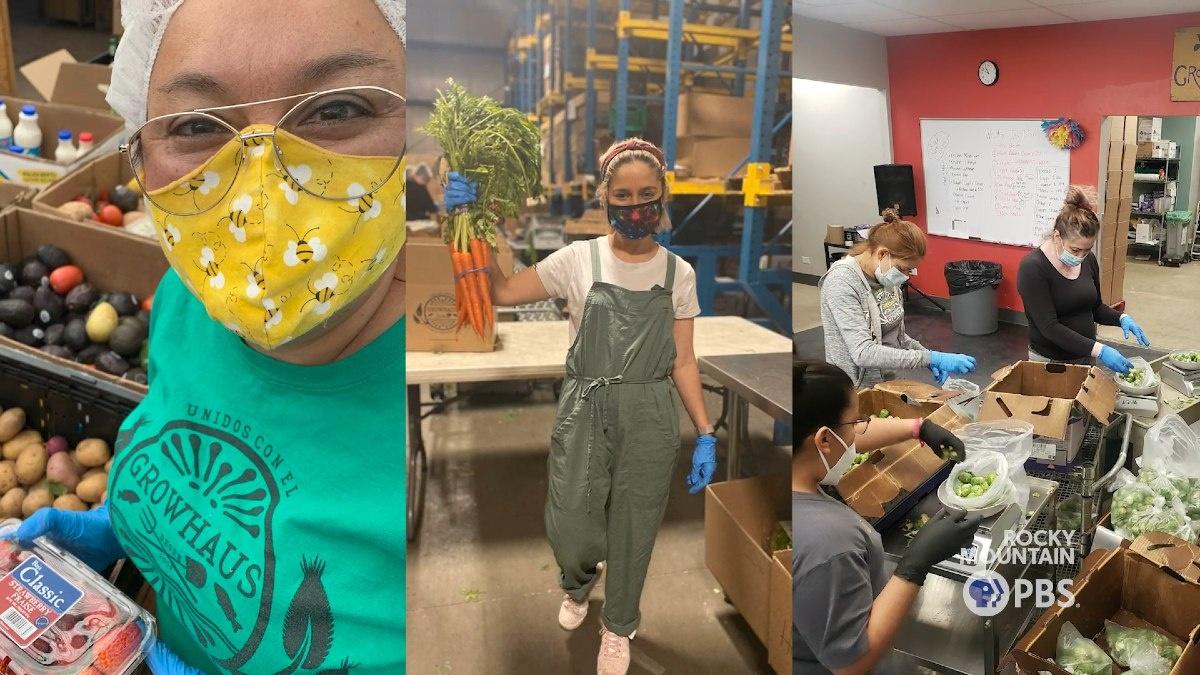The nonprofit also runs a free grocery program for those that need it. You can find a list of the nonprofits “emergency food resources” here.
Just after its 10th anniversary, the organization found more purpose than ever in the time of COVID-19. The GrowHaus pivoted quickly—without much of a plan or necessary funds—to provide free emergency food to GES as many households began experiencing income loss. Since March, the nonprofit has distributed 10,000 free emergency food packages.
Birdsong said the beginning of the COVID-19 pandemic really highlighted the need for affordable, healthy food in the community, especially as chain grocery stores became overwhelmed with demand. “We actually received notes on our front door saying ‘I’m your neighbor, I’m out of food, and where do I go? What do I do?’” Birdsong said. “That need was so apparent to us that we pivoted really quickly.”
The nonprofit's new program, the Rapid Response Emergency Food Distribution Program, grew exponentially and allowed GrowHaus to expand as well. With growth, the organization aims to be intentional about hiring neighborhood residents to meet their mission of community wealth building.
“For me,” says manager of food distribution Jackeline Ruiz, “this is love and hope.”
Beyond food distribution, GrowHaus is involved in a number of education and community outreach programs in order to address all the factors involved in food justice.
The nonprofit has been piloting a “hyper-localized” approach to food justice in the Globeville and Elyria-Swansea (GES) neighborhoods for the past ten years. Food deserts exist all around Denver—and the United States—and are typically defined by proximity, or how many residents live more than a certain distance from the nearest supermarket. The GrowHaus also takes into account other factors that are important to food security: price and accessibility, culture, and knowledge and empowerment. Even if a resident can travel to a grocery store, can they afford the food, do they know how to cook or store the food, and is the food culturally appropriate?
“Knowledge is power,” says Natalie Espinoza, the nonprofit’s food distribution representative.
For more information on GrowHaus, including donating to the nonprofit or subscribing to the food box program, click here.



